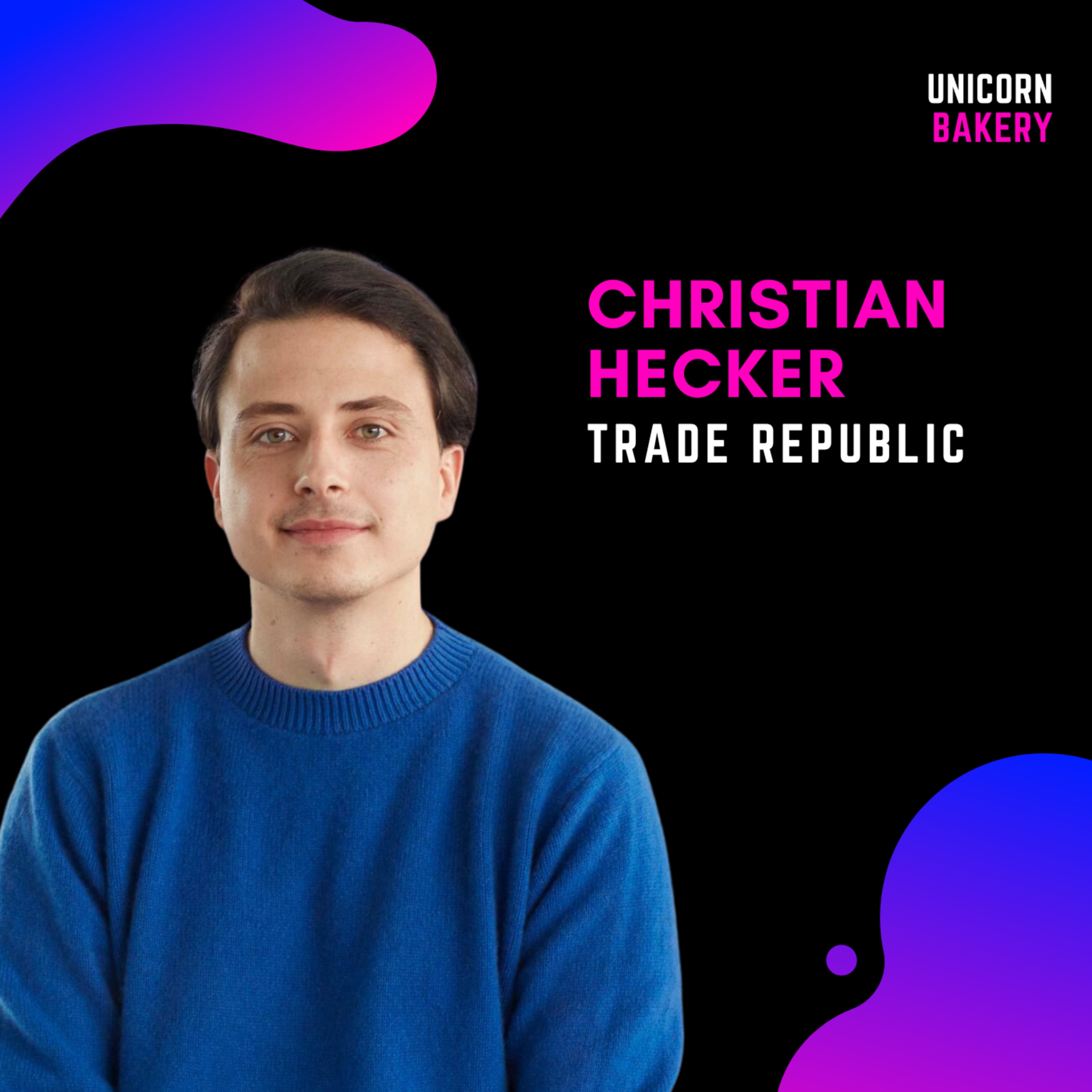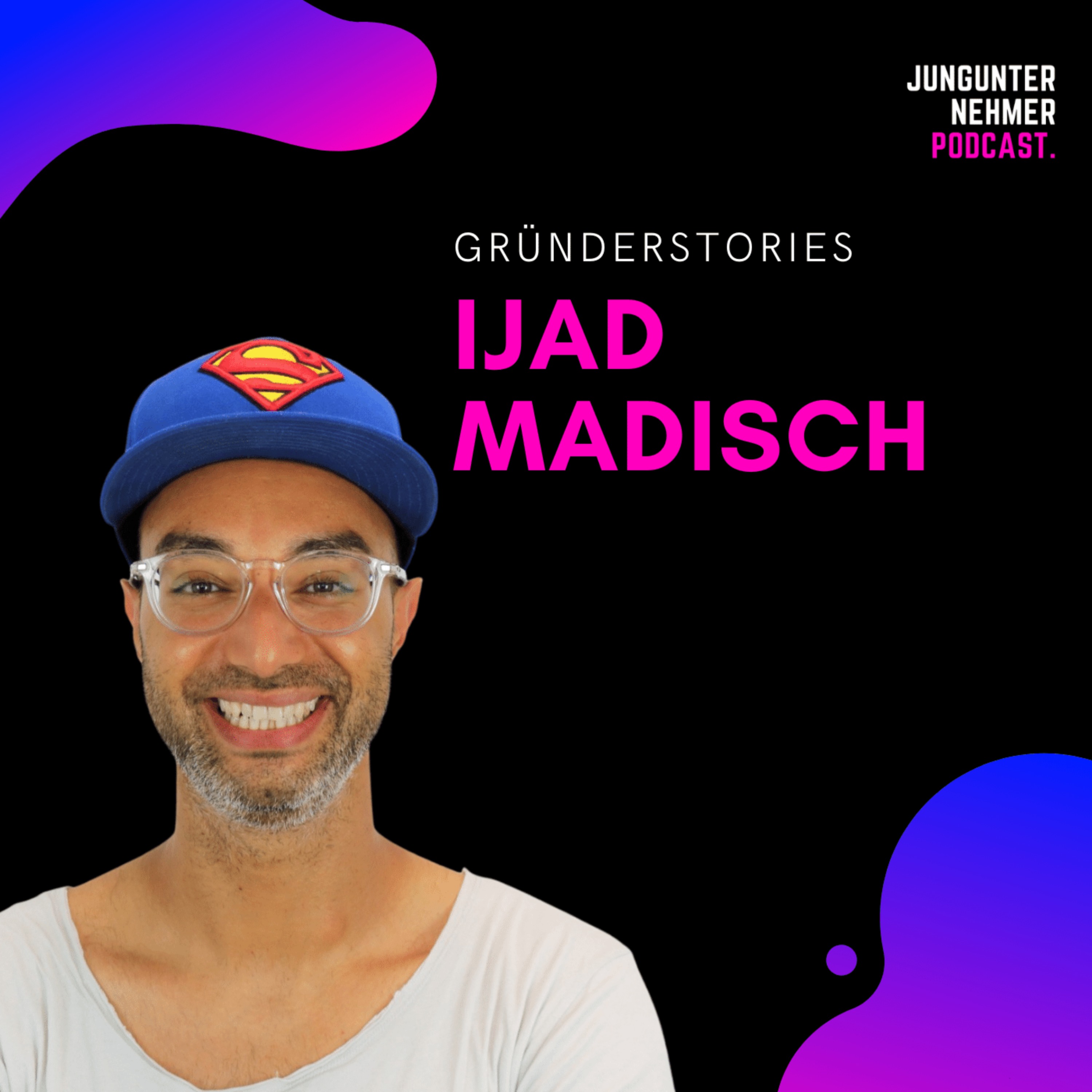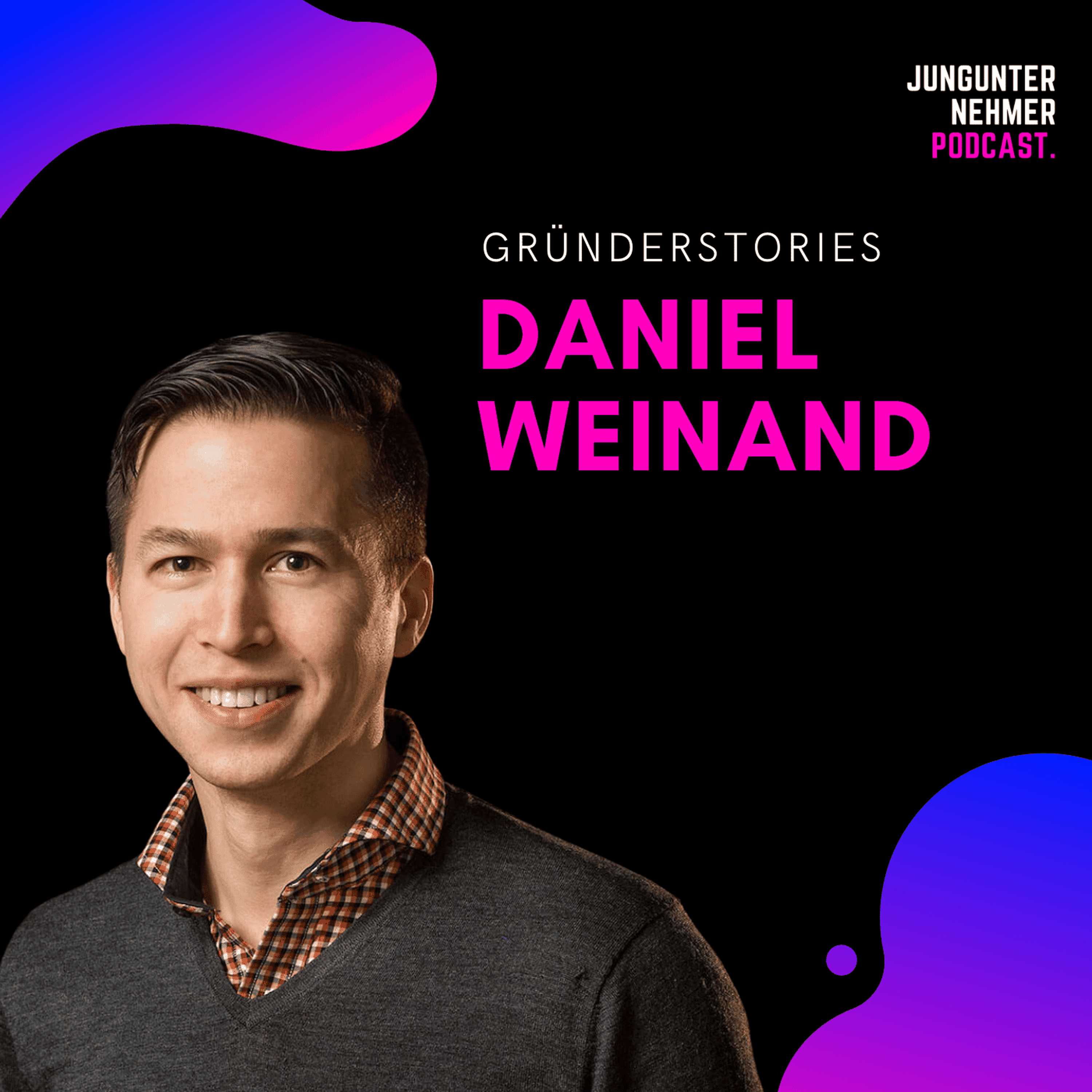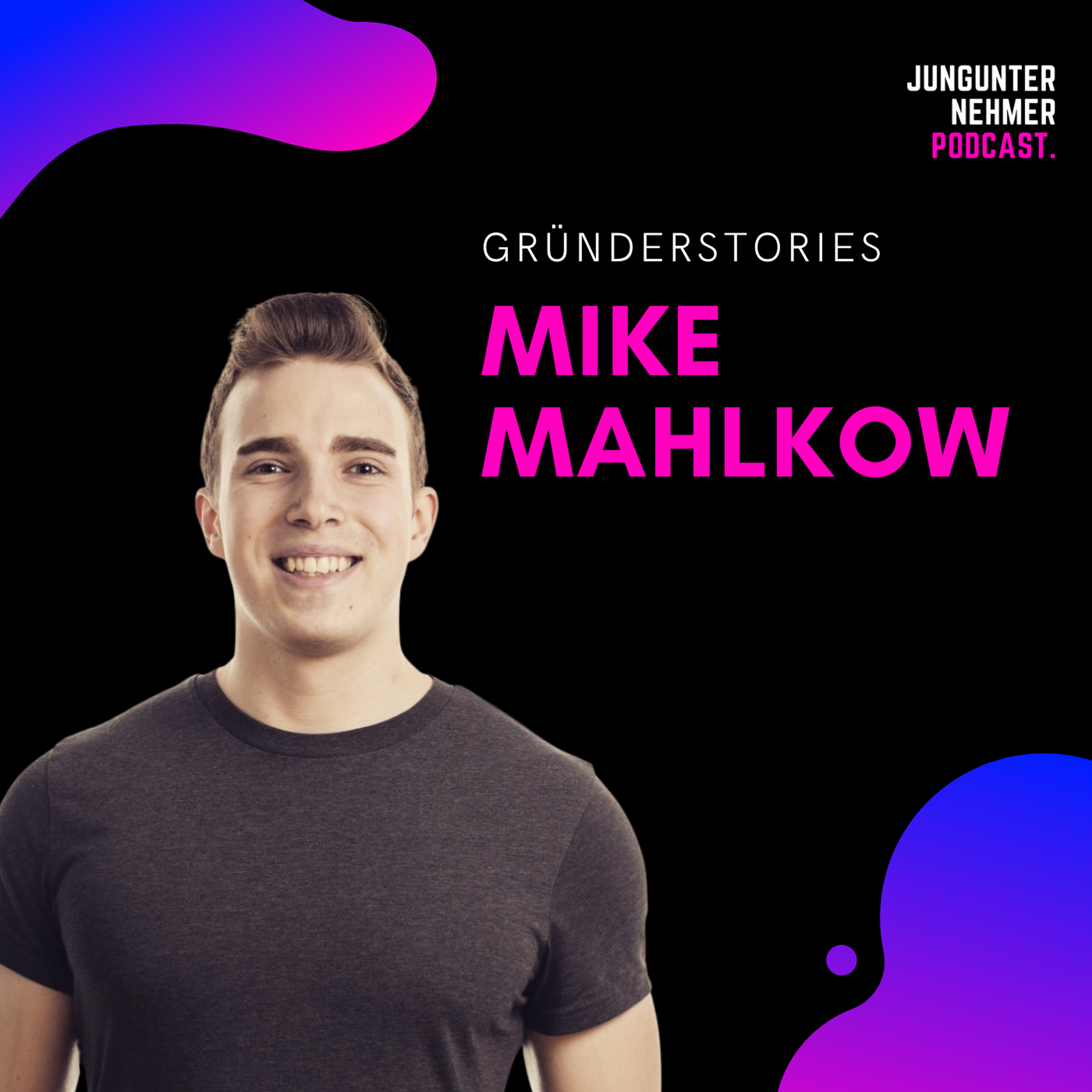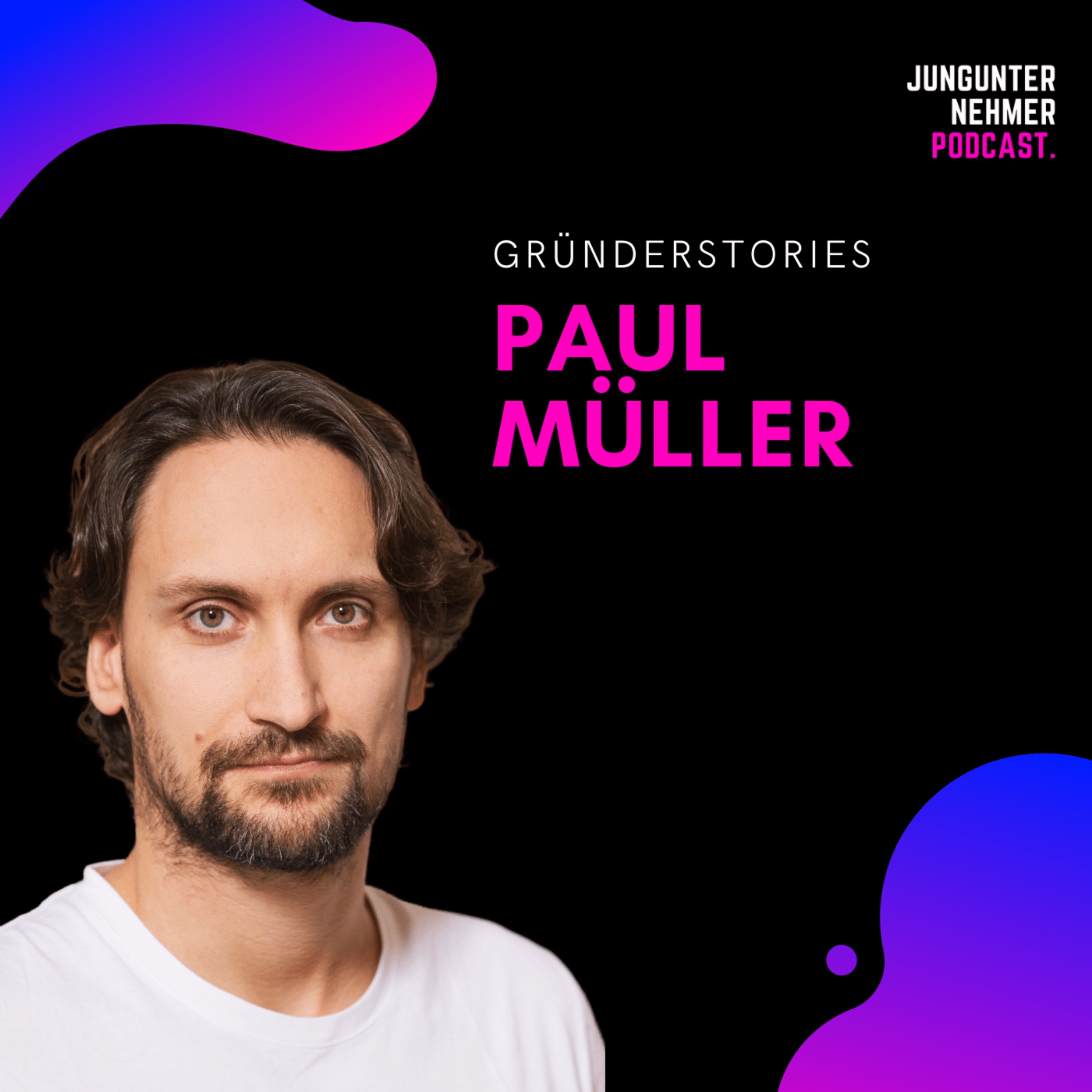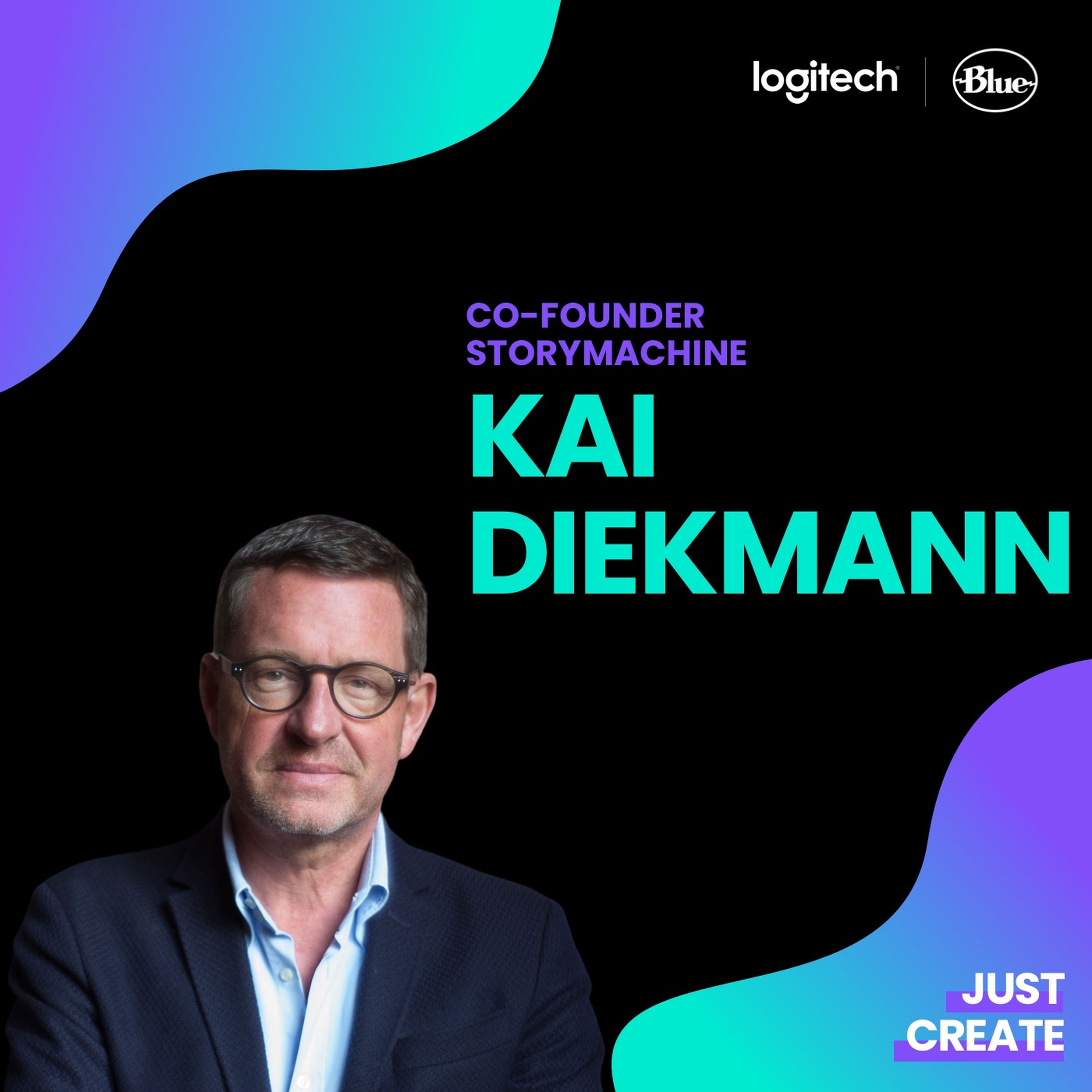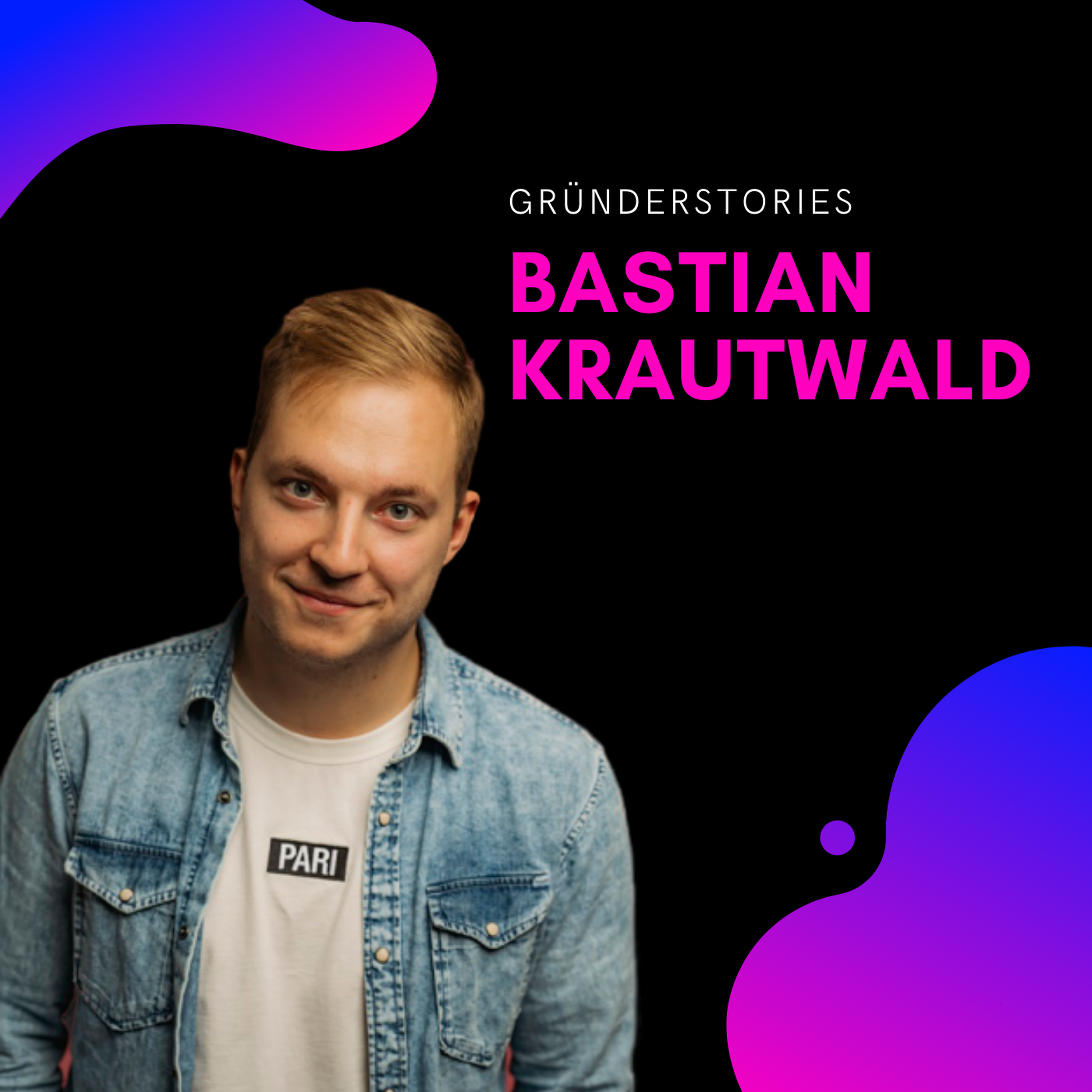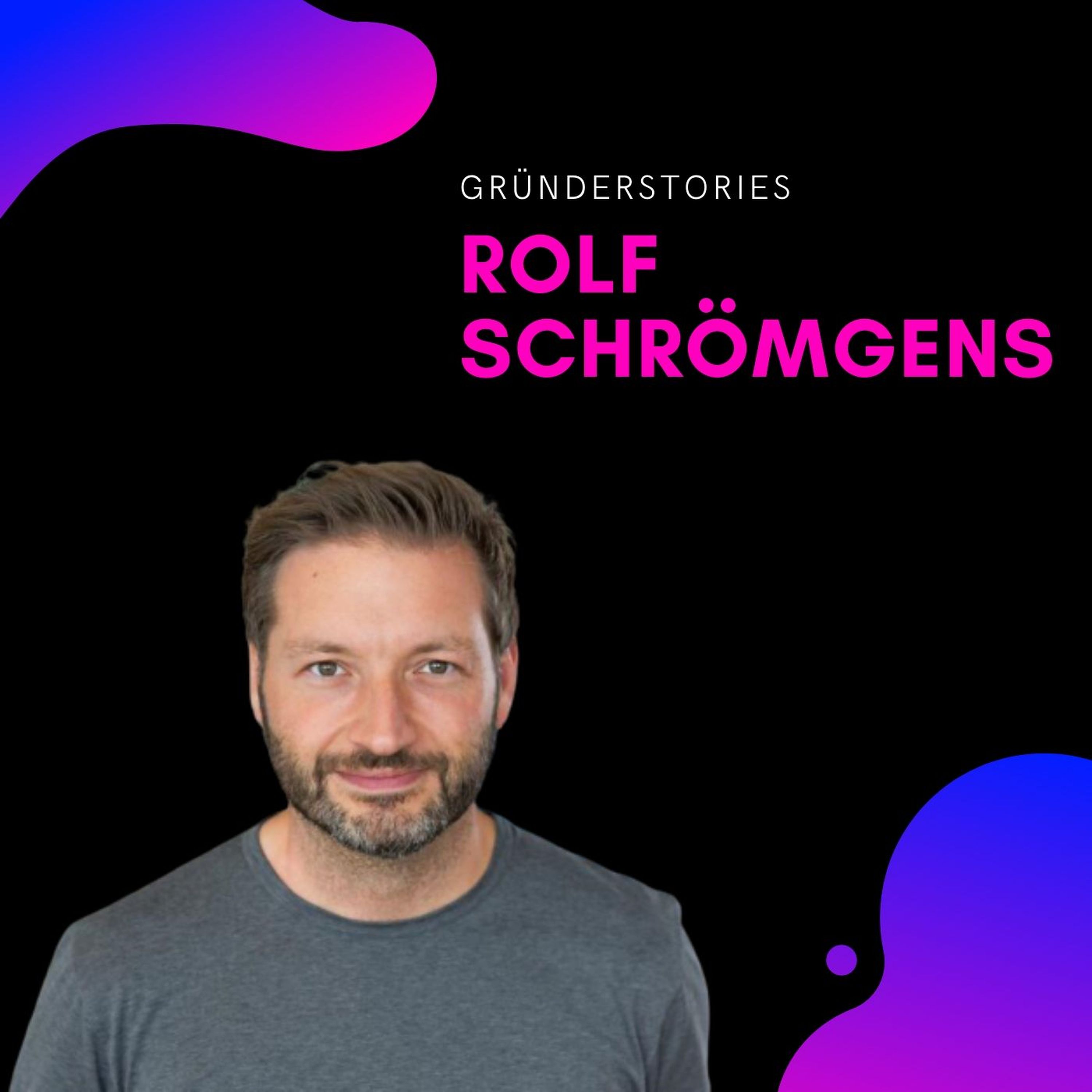1100+ investments, 40% Annual Realized Return for 26 years: How Fabrice Grinda built FJ Labs, one of the most successful Venture Capital Funds globally
Fabrice Grinda, Gründer von FJ Labs und Extremsportler, erklärt, wie er über 1100 Investments, vorrangig in Marktplatz- und Startups mit Netzwerkeffekten, investiert und damit über 26 Jahre im Durchschnitt 40% Return erwirtschaftet hat.
Weiterhin vereinfacht Fabrice in seinem Leben gerne sehr viel, indem er Dinge outsourced. Sein Rezept für ein erfülltes Leben und das Management von virtuellen Assistenten erfährst du im Podcast.
Was du lernst:
- Outsourcing: Wie du beruflich und privat mehr outsourced, um deine Lebensqualität und deinen Output zu erhöhen
- Marketplaces: Was sind die Schwierigkeiten bei der Skalierung von Marktplatzunternehmen, die wichtigsten KPIs und aktuelle Bewertungen?
- FOMO: Wie schafft man es, sich nicht von anderen drängen zu lassen?
- Senior-hiring: Ist es typisch europäisch, lieber seniorig als jung und motiviert zu hirern?
ALLES ZU UNICORN BAKERY:
Fabrice Grinda
LinkedIn: https://www.linkedin.com/in/fabricegrinda/
FJ Labs: https://www.fjlabs.com/
Unicorn Bakery Whatsapp Broadcast:
Hier erfährst du alles, was du als Gründer wissen musst: https://drp.li/jrq5S
Unser WhatsApp Broadcast hält dich mit Einblicken in die Szene, News und Top-Inhalten auf dem Laufenden.
Marker:
(00:00:00) What does a successful life look like to you and what role does money play in your life?
(00:05:50) How do you decide what things you outsource vs. what you do by yourself and how do you delegate successful?
(00:12:56) Managing lessons to become a relaxed manager/avoiding things you don't like
(00:16:38) Is hiring seniors instead of young ambitious people an European problem?
(00:20:27) FJ Labs’ Investing Strategy that leads to 1100+ Investments and 40% realized IRR over 26 years
(00:36:13) What fascinates you about marketplaces and why did you stay focused?
(00:43:28) What is needed to scale a marketplace successfully
(00:56:18) How do you manage and resist FOMO?
(00:59:39) Fabrice Grinda’s view on the macroeconomics and their influence on the venture ecosystem
(01:06:37) As an extreme sports-fanatic: what are the biggest parallels between extreme sports and investing/building a company?
(01:09:37) What did you learn about yourself through your extreme adventures and how do you manage stress?
(01:13:49) Was it as easy as it appears for you to reach everything you want and how much do you need other people's opinions?
Hosted on Acast. See acast.com/privacy for more information.
Fabrice, welcome to the Unicorn Bakery.
Thank you for having me.
At one point in life, I read and heard another podcast, you gave away all your possessions
to charity, I think besides financial possessions, and you lived from 50 goods that you still
owned and that fit in your suitcases and in the backpack.
So one of the, and you exited a company back then, or two companies, I think.
So you were, by all means, successful, but what does success look like for you specifically?
What is a successful life for you?
So let me answer this question two different ways.
What does success look like, Riddler?
So to be a successful life is one where I find meaning, purpose, and joy in every moment
of my life.
And the reason I'd given up my personal possessions back then is I felt that my friendships were
framed as you get older in your 20s and 30s, people get married, they have kids, you don't
see your friends, and we're family in as deep, meaningful ways you did before.
And I felt, you know what, if I give everything away, and I start with a blank slate, and
I can ask myself at any point in time, where do I want to be, who do I want to meet, what
do I want to do?
I can actually reinvest in my personal relationships and friendships and my family.
And so a successful life to me is one where I have meaningful connections with friends
and family, where I'm a great parent, I'm now a father to a two and a half year old
and to a one month old, where I have an extraordinary life from an adventure perspective where I'm
like kitesurfing, heli-skiing, playing tennis or pedaling competitively, and save very healthy,
and intellectually challenged and simulated and professionally challenged.
And last but not least, find purpose in things I do, like the reason I'm an investor, the
reason I'm an entrepreneur is the world is facing fundamental problems.
We're facing a climate change and a quality of opportunity, the mental and physical well
being crisis, and I want to be in a position to make a difference in rising up to the challenges
of the 21st century.
And I'm convinced we're going to solve them, and it's going to take tech founders and investors
basically do so.
And so a successful life, one that has all of that purpose professionally, in terms
of like finding and doing things that are meaningful for the world and making the world
a better place.
And I mean it non-ironically, I think the Silicon Valley show has conformed that saying, and
having a personal life that is rich of experiences, relationships in every way, shape or form.
I think I'm not the person to put things in perspective here, but like what role does
money play in your life then?
Because you have been financially rewarded for the companies you build, for the investing
you did, and so you're all called worldwide, like globally.
And frankly, it's a means to an end.
It's a money buys you freedom, and it's a tool for actually getting the things you
want.
And in this case, the things I want is actually making a difference in the world, which means
investing companies and building companies, which requires financial resources, and then
having a great quality of life.
So I'd like actually bringing my entire family together for Christmas.
I fly them from France.
I had 50 people over last year.
I mean, it takes a fair amount of money to...
Not everyone has been as privileged as I am, and I'd like sharing that privilege with
the people around me.
And so I'd like to be generous, and money is a tool to a means to that end.
But in itself, it's not a purpose, it's purely a tool.
You also recently published an episode on how you use your money to make your life easier,
and how you outsource a lot of things.
And I think for a lot of founders, and I think everybody who thinks about that, like, what
do I really want to spend my time with?
Outsourcing can be very interesting, and I found it very useful to listen to your perspective
on it.
So how do you decide what things in life you outsource versus what you do yourself?
Yeah.
So my scarce resource is my time, right?
Like the one thing that's not scalable is my time.
And so, frankly, it goes back to First Principles.
What is it that I love doing?
And I want to be spending my time doing the things I love doing.
I love meeting extraordinary founders and listening to their stories and seeing if I
can help them.
I like thinking and reading and writing about tech.
I'd like spending time with my friends and family.
I like playing paddle.
I like kite surfing.
I like hosting intellectual salons.
I like playing video games, you know, I like spending time with my kids.
And so, everything else, I try to outsource, and again, money is a tool to that end.
But you can outsource more in life than you think, I think, is one of the lessons, right?
Like I have a virtual assistant in the Philippines that really helps me with everything from
calendar management to bill payments to managing invitations for parties.
I mean, you name it, I outsource it, and I used to do it for my online dating where
the swiping was outsourced.
I mean, like, more things than you think can be outsourced.
And I do the same thing in my offline life, where I have a chef, a bottler, a state manager
to help with the offline affairs.
I know, if you like cooking, by all means cook.
In my case, it doesn't provide me value, joy, and so I'd rather allocate the time to something
else.
And so, the answer to the question is, do what you love to do, and it doesn't matter
where that is, right?
As I said, I love playing video games.
Is it productive?
No.
Does it sometimes feel overwhelming because you have then a lot of people that you somehow
need to manage to make your life work?
Not really, because I've created a process where I don't need to manage them, right?
Like my virtual assistant in the Philippines rose, she knows exactly what she needs to
do every day in terms of like, she knows when my agenda, when I have openings in the
ginger, how to fill it up.
I don't actually manage my chef.
He knows what I like, and he makes it.
Yeah, I don't actually ask for any specific meals.
So there's basically minimal management once you have the processes in place.
And so, it doesn't feel like extra work.
It actually feels like it is freeing me a lot of time.
So what's your recipe for successful delegation?
So know what you want to delegate and create a process for it.
So when I start, okay, let me start as a founder.
Like when you start as a founder, you're everything, you're the janitor, you're the customer service
representative, you're the front-end developer, the back-end developer, it depends on your
skill set, on your product manager.
And so typically, when I start a company, I do everything.
And I do everything because I want to understand what are the issues the customers are facing.
So I want to be the customer service representative.
I want to understand, I mean, in the early days, you want to absolutely delight your
first 100 customers.
You want to like give them the best experience they've ever had, the most personalized service,
and you want to make sure that you really understand what the product market fit is,
what the needs are, and you want to address them.
So I like doing it, and then I understand what the issues are.
To A, make me a better product manager and make better product decisions, but B, also
then when I hire someone to manage customer care, I understand the skill set they need
to have, the issues that they're facing, and the processes you put in place.
So when I'm doing it for my personal life, we're actually professional and personal life.
So my virtual assistant, for instance, we have a process where every day she sends me
a control panel of what she did during the day with all the tasks, which ones are done,
which ones are pending, and then the agenda for tomorrow, including the context for each
of these.
And so once that is set up, I don't need to be involved in it other than read the daily
control panel summary of what happened.
And so think through what the task is and how involved you want to be in it, and ideally
structure it in a way that you're as least involved as possible.
You want to hire people that are better than you, and pretty much everything, and just
do the things you have a superpower in, and that you love doing.
From a personal interest, does she then just send you a WhatsApp or an email, or do you
use specific tools to monitor that?
Yeah, she sends me an email daily with the summary of the day, but we chat on WhatsApp
during the day, if I have specific requests where I have a question like, hey, when did
I meet this person, and what context, what did we talk about?
I mean, that would be for something we're already not covered in the daily email.
Or if I have any requests, it's like, oh, I forgot to do whatever, a doctor's appointment,
trying to find a free time and schedule it, or oh, I want to buy this on Amazon, here's
the link, just go buy it.
And you would like, wait a minute, but buying something on Amazon, it's like a couple of
clicks, it doesn't take that much time.
Yes, that's true, but just giving someone a link is actually in WhatsApp, it's faster
than doing anything else.
And so I really try to minimize all these administrative and many type of interactions
and focus on things that I make the most sense to me.
When I'm currently a founder listening to this, and I hear how you optimize your life, and
I'm currently building my startup, I have two things to think about.
One, how can I use delegation and outsourcing, and I think hiring in general in my venture,
but also in my personal life?
Should I focus on my personal life first, or on my venture to figure out what to start
with?
Well, the reality is, it's the same person for both.
I have a virtual assistant in the Philippines that I hired on yourremoteassistant.com, and
it costs 1,500 a month, full time.
And they work at your hours.
So if you're in Europe, they'll work at European hours, if you're in the US, they'll work
at US hours, ESC, PSC, whatever.
So it is the highest leverage hiring you can do.
But in general, I hire a lot of people on Upwork and the like, right?
I make a photo album every year, and I have someone in Bangladesh helping me make it that
I found at Upwork.
I do video editing of different things, I mean, I'm pretty good at video editor myself,
for more advanced ones, I hire a bunch of people on Upwork as well.
So I outsource as much as I can.
And there are a lot of things that are high time savings, low cost, right?
Like a lot of the labor in Bangladesh is like a dollar an hour.
And in the Philippines, I don't know what the equivalent of $1,500 a month full time
is, but a couple of dollars an hour probably, not that much.
Is there a thing that you try to avoid mind share and being like involved in too many
things and stuff that you don't like so that you can't think about the stuff that you really
want to do?
So first of all, I would argue I'm probably already involved in too many things because
my mind is curious, right?
Like, if you look at my life, I'm hosting intellectual salons, I'm playing three sports
competitively, I'm an investor in 1100 companies, it's a lot of companies and it's because
I'm being driven by my curiosity.
If I like something, I just invest and I don't have any rules on, oh, I need to do that many
investments and this is ideal portfolio construction.
So probably I would say I'm busier and doing more things that I should from a personal,
whatever, from a output maximization perspective.
But again, I'm not trying to maximize output, like I'm blogging, I'm podcasting, I'm doing
all these things and I'm doing many of them half past, right?
Like I'm blogging once or twice a week, but I'm not a blogger, I'm not trying to build
a newsletter or an update, it's not my business, I just do it for fun.
And so for me again, it's like figure out the things you'd like to do, do those things
and get rid of everything else, understanding that as a founder with limited financial resources,
you have to eat glass, you have to do a lot of work, you have to work infinite hours and
that's okay.
You have the job until you can replace yourself in that position because you can afford to,
because your business model is running, because your economics are working.
So it's a question of finding those things you can get, you can move on from little by
little over time.
And it didn't start that way.
I started, you know, my first company was 23.
I was a big micromanager because I couldn't afford to let go financially, frankly, and
I didn't have the management skills.
What were the most important management lessons that you made throughout your career that
then helped you to become a more relaxed manager, I would say?
The in tech, it's better to move quickly than it is to get the right answer.
And so when you hire people, it's better to hire people that are more entrepreneurial
or younger and or not, you know, the issue with like more experienced managers and they
have worked in large companies, they typically want to find the correct answer because the
cost of failure is high in large companies.
In a startup, cost of failure is nothing.
We tried something, it didn't work.
We'll try something else tomorrow.
So iterate very quickly.
So once I realize that it's okay to fail, and in fact, you're going to fail constantly,
the path to success in a startup is infinite failure that leads to the success that you
need to do.
So basically you throw a spaghetti on the wall and you see what's six and very little
six, but ultimately you don't need many things.
It's like you just need enough of them that you get you get something that works.
And so obviously you pursue excellence, pursue getting better by speed as is that as value
and making mistakes is okay.
And so once I realize that making mistakes are okay, because you can recover from 99%
of them, then it's fine, you become a much more relaxed manager.
And of course, keep hiring the very best people.
And my current bias is for smart, ambitious, driven versus experience.
Now there are categories where that doesn't apply and that's not true, but on average,
I'd say that that's more people can learn things and figure things out.
So I don't box them into whatever the background is.
In Germany, at least most of the funds tell me and tell the founders hire
a senior as possible instead of hire for smart, ambitious, et cetera.
Why would you, is that a European or a German problem?
Is that like, how is it comparably in the US and why don't you think that?
Well, the fine senior, right?
Yeah.
I mean, again, the fine senior to me, someone imagine someone who's like 32 or 33, who's
been a P and L manager at a Uber, Instacart or Airbnb, to be their senior, right?
Like they, you don't need to get more senior than that.
They probably have the right intersection of youth, hunger, ambition and experience, right?
So I didn't mean necessarily 22 year old at a college, but I also don't mean 50 year old, right?
Like that.
And the difference is, it depends also on the companies you're building.
Some of the lessons on hiring, by the way, like you probably want to hire a CFO and
that could be a gray-haired person if you want, a sooner rather than later or like a VP of
finance and get your budgets and financial controls in order.
People do it, always do it later than they should, because they feel it's expensive,
et cetera, but it pays for itself.
Beyond that, the, here's the wrinkles on that advice.
So when I look at the founders that we have, most of them were in the late 20s, early 30s.
The exception though is in the B2B marketplaces we're building of late, you need to be changing
behavior in existing industries, and that requires credibility in the industry.
So actually in, you know, the, we're investors in a petrochemical company called NoD, and I
think the founder is in his 40s or 50s, and he worked in petrochemicals for 20 years, right?
So there are categories where experience matters.
But you probably want to marry that experience with young, ambitious, tech talented
individuals regardless anyway.
But within a startup, depending on what you're building, yeah, get, my definition of
senior would be probably different from that of others.
You know, if you've had a few jobs in your relevant position in a reasonably large startup,
that's pretty senior.
I think the more often you talk to founders who actually hired like super senior,
meaning like probably corporate or too large of a scale up and then too high of a position.
They also say, hey, we often don't need these people because they don't function in our
smaller structures.
But at the same time, most of the VC, a lot of VCs, and I will not, I can't generalize here
because that's like, like always, as always, it's not black and white.
But try to evaluate interesting.
The reality is, I think, unless you're a couple of thousand employees, you don't need them.
But that said, when you're in a couple of thousand employees, you probably do need them,
right? Like, what is the role I want to play in my startup?
I want to play, I want to be managing products.
I want to be defining strategy.
I want to do fundraising.
I don't all be nitty gritty day to day.
I don't want to deal with it.
And so having a large company, you know, my last company grew to 11,000 employees.
And so having an amazing COO to manage operations at a scale of thousands of employees
makes a lot of sense.
And the processes you need to build for 10,000 employees are very, very different from the
processes for 30 employees, which are different from 100 employees, which are different from
500, which are different from 1,000.
And in fact, 1,000 to 5,000 and 10,000 probably look more alike than, you know, 20 and 100.
And so there is a point in time where you want those people, but again, don't do it too early.
So the numbers that you communicated around FJ Labs are like 39 to 40 percent IRR realized,
not on paper. You did 1,100 plus investments.
So you're doing sometimes a few hundred investments a year.
You raised your third fund.
What is your specific investment strategy that creates such returns that are pretty much
outstanding in the venture ecosystem?
Yeah. So these actually are the numbers.
We've had 300 exits that are realized and we've had 39 percent realize IRR on those exits over
25 years. You know what? The investment strategy is funny because I didn't build it top down.
I was sitting down at the piece of paper and analyzing what is the ideal venture portfolio
construction. It was literally, it started out as my angel investing strategy.
So I describe myself as an accidental venture capitalist. I'm really an angel investor who
turned into a VC kind of. So first let me answer the question. The strategy is angel investing
at venture scale where we behave like angel investors. We're investing in hundreds of
companies every year. We write small checks like 358 to 500K. We don't lead. We don't price.
We don't take board seats. We take two one-hour meetings over the course of one week and we
tell you yes, no, and why. And we invest especially in networked and facted marketplace businesses
pretty much in every category and every geography and every stage, but it's kind of 50 percent
U.S. and Canada, 25 percent Western Europe and the rest of the rest of the world. It's
vast majority seed in a some precede some beyond words. Now this strategy is a reflection of my
personal curiosity, which I mentioned before. I'd like meeting founders. I'd like helping them. If
I can, if I'd like, if I meet founders, I'd like that are solving interesting problems. I'd like
to back them. And it just so happens. And when you look at the data, an angel list has a few posts
on this. A very diversified portfolio actually is the highest performing strategy over long periods
of time, right? Over one fund, we're never going to be at the top because one fund with one deal
that is the best deal gets all the returns. But over 20 years, if you're too concentrated, you
probably don't get all the best deals. And so as a result, you don't do that well. In our diversified
strategy, because venture follows a power law where the top few deals get all the returns,
we guarantee that we are in these deals. And as a result, we ended up doing well.
Now, the reason I describe myself as an accidental angel or a accidental VC
is I started as an angel back in 98. So when I was founder of my first company,
a lot of other people started approaching me to invest in and I was a founder, not an investor.
And I'm like, you know, is it a distraction for my core mandate as a CEO to be an investor?
And ultimately, I decided, you know what, if I can articulate lessons only to others,
it makes me a better investor. If I can keep my fingers on the pulse of the market
in order to understand the trends, it makes me a better founder, sorry, not an investor.
And as a result, as long as it doesn't take too much time, so I'm going to create a process
by which in one hour I decide if I invest or not, I'm going to decide quickly in categories I
understand. So only marketplaces and artifact businesses, because that's what I'm building,
in which case it's a legitimate. And so by 2013, when I sold my large big venture back company,
OLX, I'd made 173 investments, dozens of exits, was doing well. I'm like, okay, with my partner,
we build FJ Labs, kind of as a family office to build companies, invest in companies, didn't
really think of turning it into VC. But then a bunch of people wanted exposure to what we were
doing. And I mean like strategic family offices, wealthy individuals. And so we're like, okay,
fine, we'll create a fund. But we're not changing our strategy. We're continuing to be angel investors.
And so FJ Labs, you know, I really were angel investing at a venture scale. We decide quickly,
and it's been working really, really well. And it's a reflection also of our ambition, passion,
curiosity. You said also Angelist did the research. And I think you're at least one of the best,
if not the best living example on a distributed strategy, that it works and that it delivers
amazing returns consistently. Why do so many funds out there use a concentrated strategy instead?
I think the reason funds use a concentrated strategy is that's why the limited partners,
the investors in the funds, push them to. If you're a limited partner at a pension fund or a
sovereign wealth, or an endowment, you see yourself as the manager of the limited partner
to be investing in 20 different VC funds. And each of them, you expect to have 20 investments.
And so if you invest in 20, that if 20 investments, you have 400 deals and you have diversification.
And so if you invested in FJ Labs, you're kind of ready to diversified, it kind of negates the
job you should be doing. What's your role as a manager for that, for that limited partner,
for that wealthy individual? And so the LPs in general don't like distributed or strategies
because they see their own role as getting diversification by investing in many VCs.
And so ultimately the VCs, because the incentive systems and the category have a tendency to do
what the LPs want them to, they're like, oh, I'm a Series A B2B SaaS investor in the US,
and maybe even in this vertical or the city or whatever. And they all specialize. But at the
end of the day, of the capital deployed today, I think my partner and I deployed 150 million.
We're like the largest LPs in our own funds. And so it's a privilege to be in a position to
do what we want to do and not to be driven by the demands of the market. And does it make it
harder to get capital from LPs? Absolutely. There are many endowments, universities, etc. that have
told me, no, we don't invest in diversified strategy. I'm not going to convince them that
they're wrong and they should. I think they totally should. And the data suggests that
they would be better off investing with us. But whatever, that's their strategy. But yes,
it makes it harder for us to raise capital. But that's fine. At the end of the day, I'm not trying
to collect infinite assets under management. Having a fund kind of actually falls in my
outsourcing strategy. The reason we, Jose and I started building a fund and having a team is
we were getting too many deals. Every week, we're getting 300 deals. And I want to be talking to
the best founders. And so actually having a team and we have 10 investors, we're filtering the
300 deals. So we get to the top five per week makes a lot of sense. And again, it's an amazing
quality of life. And as we got bigger, the number of legal things that started happening, exits,
IPOs, down rounds, up rounds, going public, going bankrupt, whatever kept increasing. And so actually
having a back office team, we have a huge back office team to deal with all that made a lot of
sense. And so that's the benefit of actually having a fund is you can have a team to deal with the
things I don't like. Now the downside, of course, is we need to be raising money from LPs. We need
to be providing reporting. But that's why we have four partners on the fund and we allocate or divide
labor intelligently. It's my partner Jose and Jeff that do most of the fundraising. And we have an
investor or a relations person. And then we have a big back office team with like COO, CFO, and
everything that help with the back office. That's what I can focus on, thinking about the future
and trends and thesis and meeting amazing founders and building new companies.
I think I read that you, in my opinion, only have 20 LPs to get to the target to the fund size that
you are at the moment. This sounds relative, like a relatively low number of LPs and a high number,
like a high commitment per LP, which I think was very interesting because from when I talked to
other funds that I think that they were are they have a more diversified LP base.
So fund two was 175 million, 20 LPs. Fund three is 290 million, about maybe 50 LPs.
And I think it's intentionally, we put high minimums of like 4 million because we'd rather
have more meaningful conversations with a few LPs than infinite LP events. Partly because also our
time is limited, right? Like every LP expects us to talk to them maybe once a year. I need to go
pitch them. If I'm a thousand LPs, I need to pitch a thousand people. That's a thousand hours a year
that I'm not spending time on meeting founders and thinking about the future and doing things that
I think are actually my real job. And so I would rather have a reasonably, not too concentrated,
but 50 LPs than a thousand LPs. And I'd rather have convictions checks as well. And given that
many people don't like the diversified strategy, it also helps, right? Like if someone tells us
they're not into the diversified strategy, I'm not going to spend one minute trying to change
their minds. They're wrong, by the way, but I'm not changing their minds. So it's not worth my time
to go and take a meeting. Additionally, to the self selection of, hey, do they like our strategy
of investing or not? What requirements do you have for LPs? I don't really have requirements
other than maybe aligned with our values and mission, right? Like at the end of the day,
the reason I'm a VC is because I want to use technology and that's deflationary power and
its ability to improve user experiences to solve the world's problems. And I'd like them to believe
and buy in our mission. And if they can write pro-rata checks or they can write co-investment
checks in their best deals, that helps us as well because we don't have enough capital to do that.
If they could be Iran for the next few funds, that's actually a big plus for us. It makes
fundraising easier. But yeah, that's basically it. Aligned values, people that believe in us and
support us and are Iran for the long run. So you said you get 300 deals a week. That's like
15,000 deals a year if we talk about 50 weeks in a year. I can imagine that not all of them are
marketplaces, etc. But even in network effect businesses, even when those are the ones that you
are committed to, what needs to happen that you do or make an exception and invest something
that's not a marketplace or a network effects business? So we have a number of cases where
we have exceptions. The easiest case for the exception is if the founder is one we backed
before and they've done really, really well and now they're coming back to their new company and
it doesn't matter whether they're building, they're going to get a check from us.
And that's how we ended up investing in an electric flying taxi company called Archer,
a VTOL company, and we ended up investing in a robotics company called FIGR. The founder had
built a company called Vettery, which was a labor marketplace. We sold it to a deco for like 100
million. We done very well and then we backed him in Archer and then he sold that. We did very well
and now we're backing him in FIGR, which is early but looks extraordinarily promising.
And so that's the number one rule. If you're an amazing founder, we back you before you did well,
we will back you no questions asked, no matter what you do. And that leads to actually a lot
of investments that are non-traditional because to date in the 1100 companies, about 2000 founders,
300 exits is about 600 founders. We've made money on half of these. So it's 300 founders that
essentially kind of a blind check, whatever they do next, they're going to get a check for what they
do. So it's fair amount of founders and it's an increasing number as well. So it's an increasing
number of checks and repeat founders doing things that are not necessarily marketplaces.
Case number two, it's businesses that are marketplace-adjacent or infrastructure-support
marketplaces. So we're investors in Rapid or Stripe, which are like payment companies that
all our marketplaces use them. We're investors in ShipBob, which is a last mile picking and
packing warehouse business that most of our marketplaces use. And so things that are supporting
the underlying businesses. So the infrastructure layer of Flexport, I mean, it kind of is the
marketplace itself, but it's a digital freight forwarder. And again, it supports the B2B digitization
and global trade, and it supports a lot of our underlying businesses. The next category is a lot
of businesses that are not currently marketplaces, but could really become marketplaces. So there are
a lot of B2B SaaS companies that are currently just a B2B SaaS, but could become a marketplace
or vice versa, marketplaces that could be SaaS-enabled. And the reality is you find network
effects in more places than you think. And marketplaces, to me, is a broad definition. Let me
give you my definition. It's a company that is an intermediary between a provider of something
and a seller of something. And so let me give you an example of FinTech, a company that is doing
factoring. Well, to me, it's a marketplace because it's an intermediary between provider of capital,
typically the banks, and a borrower of capital. It could be a company or an individual. It doesn't
matter. Now, you know you have a network effect business when as you scale, your customer acquisition
costs go down, your margin increases, and more and more of your traffic becomes organic. And so in
the example of prior FinTech, as you scale, typically more and more capital providers want to
provide your capital, your cost of capital goes down, and then your data improves such that your
metrics for underwriting get better, and often you're in a position as a result to offer better
rates, and you end up in a position where your tax start declining over time. And so these things,
and even though many people put this in FinTech, the dynamics with network effects and marketplaces,
and so granted, it's a broad definition, but it gives you a sense of what that means. Now,
obviously, the things that are not included in here are hardware, biotech, but many categories
that used to be not networked effects, not marketplaces, or becoming that because of software.
So think of climate technology. It used to be climate technology, you were building whatever
fusion reactor, maybe a massive solar planet plant, and you needed $100 million to turn the
lights on. Obviously, that's not the type of things we invest. But in the climate space now,
we have carbon offset marketplaces. You have grid management software, which is actually managing
a marketplace. So a company like Leap is managing, is using people's cars that are connected to the
grid as batteries for the grid as a whole. So you're doing load balancing on the grid, using
people's at-home batteries and cars. I mean, these things have marketplace dynamics, even though it's
a piece of software that's essentially being sold to the utilities. And so more and more of the world
is becoming software, like software is eating the world's sentence. I think it's Mark Andreessen.
And as a result, more and more businesses are starting to have these marketplace and network
effect dynamics. What started to fascinate you about marketplaces? Because you are now following
this model for so many years and decades. Why did you never... So on the one hand, you're like
absolutely an expert in marketplaces. But at the same time, a lot of other people that I met then
got broader in what they did and not deeper and even more, even more, even more into the same niche.
Why did you stay in that niche? So first of all, I'm an economist by formation. And as an economist,
I always understood the value of markets for creating transparency and liquidity and things
that are opaque and fragmented and the massive amounts of value that were created. And it turns
out that that niche, as you call it, is much larger than we think because it applies... So yes,
we are specific on a type of business, but it's in every category, in every industry. We have
marketplaces in the climate space. We have marketplaces in petrochemicals. We have marketplaces
in most B2B industries. And so it is actually broader than it looks. It's just the dynamics of
the business that are specific. And there is a concept of circle of competence. In life,
you want to do the things you're really good at. And if you're very smart and very successful,
there's a tendency to believe you're good at everything. Now, you could maybe become good
at everything, but it doesn't make you good at everything by default. This is the way doctors
who are amazing neurosurgeon thinks he's amazing at investing and loses all his money because,
of course, he doesn't know anything about investing, but he thinks he does because he's smart. And so
as long as the industry and the category I'm in remains very large, very attractive,
there's no reason to go elsewhere. I could deploy a billion... Maybe I could easily
deploy a billion dollar fund like 300 million, 400 million a year without changing anything in
my strategy. And I'm really, really far from that. I'm 3x away from that. And so for now,
there's really no reason to change. And I love the marketplace dynamics where it's capital efficient,
it's where it takes most, and it's massively deflationary, brings tremendous efficiency. And
when I look at the world, especially the B2B world, where today in every major vertical,
and the B2B world is like most of GDP, like petrochemicals, trillions and metals, and I mean
steel, cement, all these things, which are like the fundamental inputs that build the world,
or trillions and trillions and trillions of dollars, and online penetration is like sub 1%.
At best, it's sub 5%. And so the idea to build marketplaces in all these industries and helping
digitize all the businesses, which is our current thesis, we're at the very, very beginning. We're
day one, maybe even day zero, nothing has been done, everything remains to be built, and this
will happen over the next 20 years. And look, maybe one day, these different theses you're
played at, and we'll do something else. But right now, and for the last 25 years, I keep finding
more and more places where this applies, and more categories where it applies, or like even
categories where it didn't apply before, like climate, where it's now you're starting to see
opportunities in marketplaces and climate. And so I'm very bullish on the opportunity.
The most interesting thing about you is, you always say you love the zero to one,
at the same time, you're bringing FJ Labs to one to X, X being like, let's say 100,
by bringing a lot of companies from zero to one again, like it's an interesting cycle that you
build. Yeah, look, I like the zero to one personally, as in I'm building a company, it's fun,
it's exciting, etc. And by the way, FJ Labs is a startup, right? There were 34 employees,
we didn't exist a decade ago. I didn't join a fund, I created a fund. And so it feels like
we're doing the zero to one here as well. And yes, hopefully, hopefully, it goes to 100,
but not 100 employees. I'm hopefully definitely not that. Hopefully we're scalable and we can
deploy more capital of the same team. So I like this beginning super new energy of building something
from the first time, which is why by the way, at FJ, we have a studio program where we help build
companies. And actually, I recently helped build a yield bearing stablecoin, it's a German company
actually, called Midas. And that zero to one phase is super fun. And at some point,
the team is fully formed and then it doesn't need me that much anymore than I'm just on the board.
What needs to happen that you can deploy more capital with the same team? Because what you don't
want is like inflated rounds where you would need to write bigger checks to get the same thing happen.
So right now, we're very undersized. The because we're fun sizes, let's say 300 million, that's
290, but whatever, 300 million, we're deploying 100 million a year. And our current check sizes
are 150k pre seed, 300k seed, 500k a and 550k b. Because if we wrote bigger checks, we would basically
run out of money too quickly. And the LPs we have, they want to fund every three years, not more.
But I could very easily write 250k pre seed checks or 200k pre seed checks and
450k seed checks and whatever 900k a checks and 1.5 million dollar b checks or even 2 million
dollar b checks without changing the team without changing the strategy through the only thing we
do, we're not changing the valuation, we're not changing anything. The only thing we do is we write
a bigger check in the exact same strategy. And I suspect we can do that with like 300 million a year.
Probably not more, by the way. So we could not be a five billion dollar fund. So then I would need
to change the strategy. And by the way, I don't want to change the strategy. So because I love
the strategy we're pursuing, I like the number of founders I'm meeting, the number of deals we're
doing. I don't want to change the strategy, but I would like to write slightly bigger checks.
So yeah, if the next fund could be a 500 million dollar fund or the fund after that 750,
then we reassess because it does depend on market conditions. I suspect our ideal fund size
probably ran a billion, but it might be 750, it might be a billion too, but like probably that
range, given the current environment, and we would not need many, maybe a few more people,
but I don't think we need many more people to do that because it's the exact same strategy to just
make our check size. And hopefully we get there. I mean, TBD right now, we're like raising a fund in
today's environment is hard. LPs have been burned, they feel over allocated. Now the good news is
we're not raising right now. Fund four for us will be in 2025. So we'll go to market in Lake 24 or
early 25 for 2025 close. Which sounds quite soon when we look at that it's already April 24. It's
interesting how time flies. If I listen to that, it sounds like it's so far away, but it probably
isn't. I think there's no person on earth that saw, I feel confident saying that you can accept
or decline, but that saw as many marketplace businesses as you did. So from all your experience,
what would you say is the hardest part about bringing a marketplace to a successful company
in a winner takes most market? So in marketplaces, you're always facing the chicken and egg,
and so you start supply or demand, and then how do you match them? So getting to the point
where you have actual liquidity and the network effects kick in is the hardest thing. Because
in the early days, you don't have network effects, you're basically hacking one side or the other,
etc. My recipe would be the following. And you start with the supply because the sellers are
financially motivated to be in the platform, you curate the very best supply that you make sure
that they're on the platform, they love it, etc. But you have very limited supply, then you bring
demand to that supply such that the sell-through rate, if it's an item, is like 25%. If it's labor,
maybe you represent at least 25% of their earnings. And once you do that, then you skill supply again,
and you keep skilling them in parallel until the flywheel kicks in. The biggest mistake you can
make, which is the most common mistake in marketplaces is you get infinite supply to begin with,
and then you don't have any demand for them. So they're not engaged, they churn,
and the flywheel never kicks off. If I wanted to build a locksmith marketplace in Berlin,
I don't have any locksmith there in Berlin, but maybe two or three thousand, I can probably call
every one of them in a month and convince them because we're free to be on the platform.
But that doesn't mean, especially if I bring them zero clients, that they would be active,
engaged, would reply, and would provide a delightful experience for the users. But if I
signed one in one neighborhood, and then I bring them a lot of customers, and they were delighted,
and both sides are very happy, then I bring another one on. And if you keep doing it like that,
then you can build your successful business. And so getting to the point where you have
actual liquidity, even at small scale, that the flywheel starts going, is the hardest thing to
do, especially to your point, and winner takes most businesses, because what sometimes happens,
less today, but definitely in 2021, is you have eight competitors who raise a lot of money,
and all going after the same category. And so there's a temptation to go and use spending,
either in sales team or marketing or whatever, or negative economics, in order to launch the
flywheel, and often it backsfires. And also, if you have too many people trying to do the same
thing at the same time, you can destroy the entire economics of the business. I mean, we saw it in
like the right sharing war, as you saw it in the scooter war, as you saw it in the classified
wars around the world, where for a long time, no one was making money, because there's too many
people subsidizing, or you saw it also in the QuickCommerce business, the Geteer, Joker,
and business where there's so many players subsidizing delivery that everyone is losing money.
I know you're a math guy, and I assume you're a framework guy too. So is there an equation to
so that I can figure out, and my liquidity formula?
Yes, you have liquidity. Typically, when 25% of the items listed sell, so if I listed an item
on a use-good platform, and the probability of it selling is 25% or more, that means you have
liquidity. If you are a labor marketplace, and people are listed on it, and you represent 20%
or so of their income, you have liquidity. On a classified business, if your retention after
like a year or two, well, it's still going to be percentage of high probability of item selling,
but you could also look at it on like user retention after 12 months, and it should be at
least 40%, 50%. In a classified platform, you should have at least half the users come in every
month, essentially. So it's a combination of DAUs, MEUs, but ultimately, liquidity is going to be
driven by the probability of the item selling, and so it's really the way you look at it.
Let's say you're selling items. Number of items listed, number of visitors that are sellers,
well, the number of visitors, what percentage of them are sellers and less,
versus times the number of items that actually ultimately end up selling times the AOV times
your take rate is kind of like the way the business works, and you compare that to your
CAC, and then you look at retention and over a 12 month, and I want you to get economics where
you're fully recouping your customer acquisition costs on a contribution margin two basis after
six months, and where you're 3xing your CAC after 18 months on a CM2 basis. And if you're not there,
I need to believe you're going to get there with scale without like every star in the multiverse
aligning. In the early days, or I think that's also true for scaling, can I have a too high
probability of selling and turning over the items? No. If the items sell and they sold super
quickly, that's amazing. And if it means you need to get more items, great, get more items.
It'll be easy to convince people. If the items sell so quickly, it'll be very easy to get other
people to sell. So you can never be too high. If your sell-through rate is 100%, that's amazing.
Probably suggest sellers should decrease prices by the asset. What's the dumbest thing to do
when I reach liquidity for the first time? The dumbest thing to do is overflow your marketplace
of supply. So classified businesses, which are usually CDC, sometimes they're tempted to go,
oh, let's go to B2C, let's get infinite items, but then these items are high price, low quality,
and the sell-through rate goes to zero, and you destroy liquidity. Or in the example I gave earlier,
you put infinite locksmith on the platform, but none of them are getting any buyers. And so
as a result, they churn and they're not engaged. You need to keep scaling little by little
with your supply and your demand, such that you can maintain liquidity. If you overwhelm your
platform with supply, all of a sudden, you're going to destroy your liquidity.
And from a scaling perspective, at what stage would you want me to reach the network effects of
me needing more people to reach a scaling benefit of my marketplace?
Yeah, probably after the Series B, right? So with your seed round of a million, I expect you to get
to maybe 100, it depends on the business, but let's say you're a, if you're a B2C with 15%
take rate, maybe from pre-seed to seed, I want you to go from 0 to 150K a month with a 15% take
rate, so you're whatever, maybe you make 25, 30K a month in that. If you're a B2B, maybe you're
doing 500K a month, then you're taking 5%, you get 25K a month. With that, you raise 3 at 10-pre,
and with that 3 at 10-pre, I expect you to get to whatever 750K a month with 15% take rate,
you know, whatever 100K in that, or maybe 2M a month with a 5% take rate in B2B. And then
with good economics, you're still going to be losing money. Then with that, you raise your Series
A, which is like, whatever, 7 at 23-pre, 30-post, and you get to 2.5M a month with a 15% take rate,
or maybe 10M with a 5% take rate, and 7.5M. And with that last round, like,
it's not the last one, but I expect you to get to a scale where you're at 100M to 200M in GMV,
you can be profitable if you want to, and then you have the choice of, like,
you raise more money in Series C, D, E to scale, or not. And so that's what I'm really expecting,
proper network effects, scalability, etc., etc. Let's say you invest in my seed round.
What needs to happen that you invest, meaning follow on in my Series A?
So you need to be at a place where you can raise a Series A. So if you were doing 150K at seed,
you need to be doing one of our 6, 700K at your A. The economics need to look good, meaning you need
you need to have found a scalable customer acquisition channel. I don't care if it's a
sales team or marketing, or it doesn't matter what it is, but it needs to be scalable and repeatable.
Add good union economics. And you need to convince me that maybe the amount you raise in the A,
which is going to be 1 over 7M, 10M, you're going to be able to go to the next phase. And
it's important, the price needs to be fair in light of traction. And if there are many cases where
the team is amazing, the traction is amazing, the economics are good, but the price is too high,
we want to invest. So it goes back to our 4 criteria. Do we like the team? Do we like the
business? Do we like the deal terms? And do we like the thesis? And if all four are true, we do it.
And that's true for first-time investments, but it's also true for a follow-on investment.
So if the price is too high then, but everything is still fine, would you
stick and hold all your shares, or would you do secondaries?
Well, you can, private and market, secondaries are only, or are rarely possible in the A,
almost in Pundever. If I feel something is overvalued, and there's a secondary opportunity,
but usually it would be in the C or the D or the E, I might sell 50%. I don't typically sell 100%
because you never know. Sometimes trees grow to the moon, but also secondaries are almost
never possible. You need to realize that it's only the very best companies where you can get
secondaries. For that statement to be true, you have a definitely a high rate of
exits compared to portfolios, or you definitely did a very good job in being in the best companies.
Well, also, or I'm also a contrarian. So in 2021, when there's a lot of secondaries that are more
secondaries than normal that are possible, we chose to sell when we felt valuations were high.
But it's interesting because in 2021, everyone was like, we need to invest. Their opportunity is
huge. And we're like, these valuations are insane. It's 100x ARR or whatever. I don't see how we get
there. Take money off the table. And it was the opposite last year, in 2023, everyone was like,
oh, my God, the world is ending. We're going to have a recession. We should not be investing.
And last year, I was like, no, no, it's the opposite. Value is reasonable, less competition.
We should be investing like crazy. So on the macro side, you want to be a contrarian.
But yes, because I've been an investor for so long, many of my companies have reached maturity
where I can get secondaries, right? Like right now, so look, we're investors in things like SpaceX
or Stripe or FlexFord or ShipBob. I mean, these are all multi-billionaire companies.
Clarna, there are secondary options out there. You may or may not want to take them because
you may agree or disagree with the prices and secondary markets. But if you're an investor in
enough companies for a long enough time, many of them are going to reach the billion plus
valuation stage where you can start getting secondaries. But even then, there are many
billionaire companies in the world that we're investors in that we cannot get secondaries in.
But right now, for instance, we're not selling anything. Because many of these companies are
doing very well, like ShipBob is crushing it. And the prices that people are being pitched
on secondary markets are like 50 or 60 or 70 or 80% discount to the last round. And when the
company is doing really well, and I think there's a real path for them to double or triple in size
and either grown or more than grown in their valuation or increase their valuation dramatically
as the public markets open again in 25 and 26, it makes more sense to wait for the IPO.
How do you protect yourself against the fear of missing out during, let's say,
the times where everybody wants to buy the secondaries and you then still sell them?
You know, look, everyone else has FOMO. I don't seem to suffer from FOMO very much.
You need to realize most of my exits are secondaries and most of the exits are
selling to supposedly the smartest and best investors in the world. So most of my exits,
I'm selling to Sequoia and Greylock and Andreessen and back in the day, Tiger and Softbank. And that
turns out that Tiger and Softbank was not as smart as they thought they were, and that is the rest
of the world thought they were. But we, that's okay. It's a question of what are you underwriting?
I want to underwrite a 10x. And so if a company is only going to be a 3x from where it's at right now,
it doesn't actually make sense for me to continue to stay in because I want to be underwriting at
40% IR. If I'm not underwriting 40% IR and a 10x kind of potential, I'm better off selling,
taking the capital and redeploying it in my seed rounds or A rounds, where I'm more confident
that I'm going to be able to get these types of returns. But if you're a, if you have like,
whatever, it's five, 10 billion in your Sequoia, I think if they get 3x, especially the late
stage, I think they're happy. But I'm not happy, even late stage, I'm not happy with 3x. If I'm
only getting underwriting 3x, I'd rather not be invested. That's so, so interesting. Because
there is the saying that a lot of the value in a company is captured like in the later stage,
for example, even after the IPO. And that's something why is this only true for the very,
very, very best companies? Or is this true for many companies? Or? First of all, I think it's
only true for the very best companies. Most companies that in my portfolio that have got public
or down on their IPO price, especially post-lockup, even for years afterwards. So it's only true,
the compounders are really only the Facebooks and Googles and Shopify in the world. They're not
very many of these. The companies with less than 10 billion market cap, most of them, I think, were
down massively from their IPO price. So that's problem number one. Problem number two,
the statement of most of the value accrues afterwards is in terms of absolute dollars of
capital, not in terms of IRR. And so if you're deploying 10 billion or 15 billion, that's fantastic.
It can compound at 15% a year, and it's a lot of money. I'm capital constrained today. And so
I can still, I still have many opportunities to deploy at 40% IRR in the early stage. And so
the minute a company goes public, I typically, I mean, I'm locked up for six months. Once the
lockup expires, we're going to sell 100%. We're not public market investors, and even if we wear,
we're not going to be getting 40% IRR. So I'm redeploying the capital early every single time
because there's more opportunity early stage. Again, it's a different problem if you're an
asset manager with $100 billion, you're not going to be able to get these 40% IRRs, and you're not
going to be able to deploy that type of money early stage. So then of course, you stay in
the Google, the companies that go public that can keep scaling forever. In my case, I'm way
better off reinvesting in C today. Super interesting. I love your perspective here. And
I think a lot of people can learn something out of this dynamic, obviously. And at the same time,
I know you have a lot for the macroeconomics and a lot of opinions and a lot of them were
right in the past. So I think one of the questions I'd like to ask is, what do you currently see
in the macroeconomics for the next months? And what does this mean for the venture ecosystem?
So it looks like we pulled a cat out of a hat or kind of a miracle. So in the last 70 years,
we've only had one example of soft lending, which is 94. And every other time when we had
a guilt curve inversion and kind of a banking implosion with a flight to safety where the
asset being pulled out of the banks and put into T bills when rates went up or rates went up as fast
as they have, we've had a recession. And so the consensus in 2223 was we were going to get a
recession. And it turns out that the US consumer, despite being overlovered, has actually been
doing really well. The unemployment is at record lows, net income, real income is at record highs,
the inequality has been declining, the blue color workers and the middle class have been
doing better than the upper classes. And so the economy has been a lot stronger than people
expected in the US. And that's why, by the way, rates have remained higher than longer than
people have expected. And so where I look at where we are in the cycle, it looks like we're at either
soft lending or no lending, we're just sideways. And current expectation is a bunch of maybe one
or two rate cuts this year, not the four or five people were expecting because inflation is hotter
than people would like, unless there's a geopolitical accident. So current expectation
is continued growth, productivity growth seems to be picking up possibly because
the AI revolution is starting to seem into or underlying productivity sats. And as rates
start becoming cut, and people become long risk, the IPO window should open again. And so I'm hoping
that in 25 and 26, we see a number of IPOs from amazing top tier companies. And I look at my portfolio
and they're amazing companies like Vinted, et cetera, that are in a position to go public in
25 or 26, and that I hope will go public in 25 or 26. And that will be amazing for the venture
Echo, December at large. Now, that's not to say there are no risks. The number one risk before
us right now is geopolitical. Could there be larger confrontations at a global level or in
the Middle East? Absolutely. And that would actually lead a massive change in both macroeconomic
and macroeconomic dynamics. There's a level of risk associated with the US elections to be the
what ends up happening from policy perspective, if there's a regime change or not unclear,
and in terms of under us. So there's, I'd say, geopolitical, red, large
overhangs or risks. But other than that, things look rosier than I would have expected them to
to be, by the way, I was more bearish in the past. But right now, it looks like the IPO window
will reopen in 25, 26. And we will have a lot of long-standing, successful companies going public.
And the, you know, Shippa, Vinted, maybe Slice, in the larger end, I can imagine Stripe,
perhaps SpaceX at some point will want to go public. So all these companies that are
doing really well will want to go public. And companies that I don't know how well they're
doing like Flexport, but probably still very valuable may want to go public as well. So
I think there's going to be an opening and it'll trickle down. As these companies go public,
the LPs start getting liquidity, and they can reinvest in the GPs and the funds. And then
that leads to more investments in the ecosystem at large. So I'm hoping it plays out this way,
understanding that we are at a reasonably high level of geopolitical uncertainty.
So until, for example, the IPO window reopens, also in the earlier stages, we still have to wait?
Well, that's not my recommendation. My recommendation is invest now, because right
now it's less competitive, valuations are more reasonable, founders are focused on burn and
union economics. The issue is many LPs don't have capital because they didn't raise
a lot of capital where they don't have enough capital and they're being cautious. So
that's not my recommendation. My recommendation is 23, 24, 25 is going to be an amazing moment
to invest in early stage. I'm just saying the venture ecosystem at large will be in a healthier
level in the future once the IPO windows reopen and LPs start getting liquidity because in 23,
there were 5x more capital calls than there were outflows. So I think in terms of distribution,
so I think it was like 80%, 20%, something like that.
So what's your recommendation for founders that are in pre-seat to Series A right now,
like the earlier stages, when they need to fundraise in the next months?
Well, if you have the money, when you need to fundraise, go fundraise. The macro is
exogenous to you. Just set the terms that are going to clear the market and make it happen.
Just don't be too greedy. It's more important to have capital.
Ideally, have capital for two years. This way, when you go back to market in 26,
you'll be in a much stronger position to command better terms. So at least raise for 18 months,
for sure, ideally 24 months. And focus on burn, union economics, and get to the scale. So what
a lot of our companies have been doing is if they were seed and they were going for an A,
but their metrics are not what the current A investors expect. As I said, 750K in GMV,
100K in net revenues, or if you're a B2B SaaS company like 100K in MRR, 1.2 million run rate
in ARR. If you're not there, and that's on the low end, by the way, if you're not there,
do a seed extension. Go to your insiders and say, hey, I need a million more.
And maybe flop to the last round. It doesn't matter. Survive. Get to your point where you can
raise your next round, have two years of cash, and don't be too greedy on valuation, etc. Because
the market is not that easy right now, except in AI. Yeah, except in AI, fair enough. Even there,
it feels like we see a little calm down, but only sometimes, depending on the business.
Yeah, I mean, I think we might be past the top of the hype cycle, but we'll see.
Besides investing, I think we talked a lot about your professional life now. And
in the beginning, a little about how you structure your life and what makes you happy. And I think
it came out that you're also very sports fanatic. And I think we didn't mention
as much how extreme sports, Afin, and fanatic you sometimes are. What would you say are the
biggest parallels between investing, building companies, and extreme sports?
So the parallel is, by taking a little bit more risk than most people, you could be highly
rewarded for it. Now the reward system is different. In tech, you take a bit more risk than most
people because you're willing to go bankrupt. And therefore, it doesn't matter. I mean,
the reality is like, what's the worst that could happen if I go bankrupt? I'm going to go and
stay with friends on their couches or live with my parents. Who cares, right? Like,
I'm going to get a job. I'm not going to be under in the streets. And so people are overly
worried about the downside. And if you went to a good school, you have reasonable friends and
parents, you're going to land on your feet. You're going to be fine. You're going to find a job.
You're going to be on the streets. And so people, I think, are more risk-averse than they should be.
And you're financially rewarded for taking risk in the tech sector as a founder, as an investor.
In extreme sports, the reward is more flow states. If you are at the limit, I think your mind
focuses at sharp ends. And you enter a beautiful flow state that I think is enjoyable in its own
right. And by the way, the activity itself is enjoyable in its own right. So I love heli-skiing.
I love going on crazy adventure travel. I walk to the South Pole, like cross Costa Rica on bicycle
with my backpack and tent and World Refiltration System from the Atlantic to the Pacific. I mean,
doing these types of adventures, I absolutely love. And I'm taking maybe marginally more risk than
some, but again, not that many because we try to control it. If I'm going extreme skiing,
I do avalanche training. I have a beacon. I have a probe. I have a shovel. And we have a radio.
And we kind of know the so conditions. And when it's risky and when it's not risky,
and we take controlled risk, basically. And once you have mastery of something, it's easier to
get it a flow state. And so it's similar by the outcomes, the purpose, what we're trying to get
out of it at different. You take a little bit more risk and the reward in one case financial,
the other cases, you're rewarded by beautiful, wonderful experiences and flow states.
What's your formula to evaluate if taking the risk is worth it?
I think it's almost always worth it because I think most often the risks in life are very,
very, very low. But look, if something had a 5% probability of dying, I wouldn't do it.
But if it's 0.01% and the reward is huge, yeah, why not? Even though I might want to do it a
thousand times in my life, that's fine. Fair enough. And what are the things you learned
about yourself throughout your extreme adventures? I think many of the things I learned about myself
are probably universal, that A, I can push myself a lot more than I think I can. And so
whatever you think your limit is, your limit is way further than that. You can suffer more,
you can take more. So if you go to the gym, you can push yourself more than you think you can,
as an example. But in the, you know, the Antarctica trip, for instance, it was like
negative 50 with windshield and pulling 100 pounds sled, we're walking eight hours a day
in horrible conditions, you're exhausted. If you have to do it, you can do it. And so
number one, I think is you, you are more resilient than you think you are. Number two,
a lot of this turns out, turns into a big gratitude practice because you realize A,
you're a privilege or to be doing this experience, but then you come back to the world
and you realize how privileged we are. I mean, I come home and there's like hot water and a
toilet and electricity and I can order food and get a pizza. I mean, these are like crazy
luxuries. And when you go back to living the way people lived hundreds of years ago,
it was hard. You're spending all your entire time to survive, like survival is a full time job.
And now we live in very privileged lives, even if you're in the middle class or lower class in the
West, your life is privileged relative to that of people 200 years ago. And I think we don't
realize that and we take it for granted. And so I think these adventures are an amazing
experience and gratitude practice, basically. And so you, you, you were grateful for the
opportunity to be there, for the lesson you learned there, for the fact that people support
you to be there. So it's amazing, amazing. How do you approach, like physically or mentally
hard times, because you had the physically hard times walking to the South Pole, you had a company
that wasn't making money for a while and you didn't get money from investors and you had to go
through that time. So you have mentally and physically hard times from like decades that
you can look back to. How do you assess such times? Yeah, honestly, look, it never bothered me
because I never saw the downside where I'd like, my first company essentially went bankrupt or I
lost everything, didn't make any money out of it. You know, big deal. I didn't, I always ended
I didn't do this for the money. I did this because I liked the zero to one. I liked building
something out of nothing. And so I was like, okay, I'm going to build my next company even
though the internet is going to be a small thing. It's not going to make money. It doesn't matter.
I like it. And the next company, while I was building it, the day to day was hard because we
couldn't raise money from, from investors. We essentially, I have to live in New York and like
sleeping in the couch at the office and tea shops in the office. I couldn't even afford
coffee and I could only eat ramen noodles because it's the only thing I could afford.
But I never saw it as a big deal. I was like, yeah, maybe it's going to fail. Most likely it's
going to fail. By the way, the five year survival rate of a startup is 5%. It's okay. I mean,
do your best to succeed, work hard. But I don't know. I'm built happy and optimistic and
grateful. And so never, none of these things are like, I realized at the end of the world, right?
Like in mass flows, hierarchy of needs, my fundamental needs were met and everything else is
you know, gravy. And so never, yeah, none of these things, as I said, we're more resilient than we
think we are. And it's a question of your attitude. And in general, I'm grateful and happy and
optimistic. And, you know, there's a saying, which is the mind is the only organ that can
turn heaven into hell and hell into heaven. So even though you're, you can be in suffering,
etc. As long as you tell yourself like this is amazing and you're doing what you're meant to be
doing, it's a good experience. And so you can really have the, you can really lead and love
the life you want to love. You can have, you can basically frame everything that's happening to you
in a way that is positive. And I totally believe delusion is positive. It feels like by living a
very stoic life, you reached a lot of the things that others would fight for and suffer for all
the time and try to make it happen somehow with, I would say, even like, yeah, crippling, crippling
for it. And it feels like it's, it's, even when there were hard times, it feels like by living
the stoic life, it somehow felt easy to, to get there for you.
Look, it's never easy. It's a lot of hard work, but it's a question of like, what do you love
doing, right? I love what you do and you never work a day again in your life. And so as long as
you love what you're doing, it doesn't matter that it's hard. It's totally fine. And I, and so
that's why I think people, if you do think so, the wrong motivation, if you do think so, because
you want to make money or whatever, at some point, if you don't love what you're doing,
you're going to be burnt out. And it's just not going to be worth it for you anymore. And,
and so yes, not having these needs and just being grateful, etc. is extraordinarily helpful.
But that said, I wouldn't take the stoic thing to its natural extreme, because I love,
you know, I love enjoying life. I love having an amazing life as well.
I take pleasure in the things that, you know, that are simple and they're in front of you
and focus on the experiences you can get.
Do you ever feel the need of, or for external validation?
No, not really. I had the opposite problem as a kid. I thought it was amazing. So I thought
I was a narcissist. I was probably a narcissist. I was like Sheldon Cooper in the Big Bang Theory
until my mid-20s, you know, like in college. And I was like, I'm, I'm, I'm, I'm the shit,
right? Like, I know everything. I'm amazing, etc. So I never had any additional validation
because I thought I was, I was the best at everything. What's interesting is the more
experience you have, and the more you really, the more you realize how little, you know,
you know, like, you know nothing, John so, and Ingrid is right. You, the more life teaches you
humility. I was very arrogant as a kid because I was very smart and very successful at everything
I did. And then as you, you know, get your teeth kicked in a few times and you realize how little,
you know, you become way more humble. I don't come across as humble, by the way, to begin with,
but relative to where I started 20, 30 years ago, way, way, way more humble.
And so from, from, from that perspective, yeah, you need to realize how little, you know,
and just be grateful for the things you have.
It's interesting because I, as a kid, also like high IQ, whatever felt very easy in school and,
but at some point, it felt for me like, okay, I was too much for a lot of other people.
So that I developed into a way of being a bit more defensive about my thoughts because I know,
okay, sometimes it's hard for others to keep up with. And like, I became more like, I put myself
a bit more into a cocoon and like, became more defensive. And therefore, it feels like I,
I think you can, you probably know, people that went that way as well, because I think there
are two things, either you, you stay in your lane, or you take the other lane, you, you
just became, become a bit more calm, keep up, like try to hold back with some of the thoughts
that you have. And it's interesting to see where, where the other lane is on, on that path.
Yeah. So I went for, I was in the other camp, meaning I was like, I thought every, I did my
own thing and I'm like, everyone else is an idiot and they can do their own thing. I know
they're wrong. Right? Like, so I was like, I had no need for external validation because I'm like,
I know I'm right. And now here's what's interesting is I wasn't necessarily right. I was right for
me. Right? Like, so I decided to build the life that's right for me. And it's not actually right
for everyone else. And so one of the wisdom you get as you get older is you realize, you know,
my value, the reason I judge people through the lens of IQ is I'm very smart. Therefore,
everyone else who's not as smart is deemed less valuable. Because as a kid that you, you want to
be, you want to have value, but I didn't need it from external persons or parties. I just brought
it to myself today. I think there are many different types of perspectives and values in the world.
And the choices I make or relevant and reflective for me. So I lead the life I want to lead without
the care for whatever it's think, because it's not their life to lead. It's my life to lead.
I do think most people should actually lead a more authentic life that is better for them
and not be afraid of what other people think. Because the reality is most people don't think
of you anyway. They're too lost into their own thoughts and it's irrelevant. And there's no
subtle, you know, who's the said that you have to whatever, go to college and get a job and get
married and have two kids and a dog or whatever. I mean, like, these are subtle norms. But where
do they, I mean, I can tell you where they come from, but it's kind of like an accident in history.
It's like when wheat was domesticated or we domesticated us, we, and because all of a sudden
the output of your work became what was the amount of work you put in, it led to the introduction
of property rights, which led to women and children becoming property and children as well.
And so you started having agricultural society, which led to a patriarchal society, which led to
religion and forcing and etc. So I can explain to you the history of why we ended up with a
system we have today and what are the norms, right? When you think through, do they make any
sense in the life we in the world we live today? The answer is not particularly. And so you should
actually live a life that's authentic to yourself. And most people are not comfortable doing that,
because they value the they think they care about whether people think and that in a way,
maybe that's a privilege I never cared. It's like, I do my own thing. You may hate me. You may love
me irrelevant. As long as it's right for me, that's what matters. But again, I've come to realize
over time how rare that way of thinking is and how privileged I am to always see the optimistic
outcome and lie and things and to be grateful for everything I have. Like, I feel gratitude
at all times for everything. And I realize most people don't feel that.
Yeah, I think that's something you realize when you talk to a lot of people that like a lot of
them are or feel like they have to live in the constraints of others and be successful in there
in the thought of others and what others would do in their perspective. I always think the hardest
part sometimes is to ask yourself, not like, what should I do? Because often you involve, okay,
what would others do when they would be were in my position? It's really what do I really want to
do no matter what others think? And it's not that easy for a lot of people. I am definitely not
for everybody, but for a lot of people. Yeah, I mean, look, the fact that I started in such an
outcast type of way of thinking, you know, the Sheldon Coopery type approach, it was easier
in a way, because then I'm like, okay, I'll do my own thing. And it's okay. You know,
when I left McKinsey when I was 23 to go and build a startup, my parents were like, are you crazy?
Yeah, like the perfect job. And you've never failed in anything in your life. And now you're
creating something you're you're going to fail. And it's going to crush you. And I'm like, yeah,
but I'm going to be happy. And and it's funny, because like a year later, when I was very successful,
and at least on paper and on TV, they're like, oh, we always encourage our son to be to be a
tech founder. And then two years later, I went back up to they're like, we told you so you should
say to McKinsey, like, I do what's right for me, doesn't matter. What would you say makes a great
decision in personal life, but also in running a company? Don't take yourself too seriously.
Have strong convictions loosely held so you can be swayed by data, and just iterate. In life,
I find in personal life, for sure, people don't iterate enough. They don't try enough things to
see what's right for them. In startups, people do try. They try different business models,
they've tried different designs, different approaches, etc. In personal life, they definitely
don't try enough things. And, you know, what is the right relationship structure for you? What is
the right living structure? Like, should you be living all times in one city versus multiple
cities should be nomads, should you not be should it should you be should you be an open or closed
relationship? There are a whole bunch of things that people don't test. They just go with the
default norm is, should you even get married? Should you have kids? It's not for everyone.
It's amazing. I highly recommend it, but I don't think it's there's a normative way that says
this is the answer for you. You need to figure out what the answer is for you. Of course,
you can't have kids and then return them. So that one is different. But I think
people need to experiment more in whatever do ayahuasca, you know, go in and find a spiritual
side to your journey. I mean, there's a lot of things you people I would recommend people try
and do in life that they typically don't. Honestly, I think that's a perfect ending to
our conversation because it lets people think about themselves right now with new inputs diluting
the effect of your words, I think. Perfect. Wonderful. Fabrice, it's been such a pleasure,
of course, I'll link to FJ Labs for everybody who thinks, okay, I'm building a marketplace or
network effects business and want to talk to these people because it seems like they could
be a good fit for me. And I link to your LinkedIn to your blog to everything because you have a
lot of great resources, articles, thoughts. It's been such a pleasure. Happy to hand over the last
words of our podcast. Perfect. Thank you. Take care.












